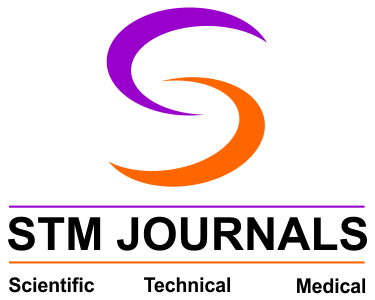About the Journal
International Journal of Toxins is a peer-reviewed open-access journal launched in 2024 that that aims to provide a platform for the dissemination of high-quality research related to all aspects of toxins. The focus of the journal is on the detection, identification, characterization, and analysis of toxins in various matrices, including food, water, air, and biological samples.
The International Journal of Toxins seeks to publish research that advances the understanding of toxins and their effects on human and animal health. The journal welcomes contributions from researchers and scientists from diverse fields, including microbiology, environmental science, toxicology, food science, pharmacology, and public health. All manuscripts submitted to the journal undergo rigorous peer-review by expert reviewers in the field to ensure the highest standards of quality and accuracy.
Focus and Scope
- Toxin production by microorganisms, plants, and animals: Toxin production, Microbial toxins, Mycotoxins, Bacterial toxins, Virulence factors, Plant toxins, Plant defense mechanisms, Allelochemicals, Phytoalexins, Secondary metabolites, Animal toxins, Venomous animals, Poisonous animals, Toxin biosynthesis, Toxin regulation, Toxin expression, Toxin secretion, Toxin purification, Toxin characterization, Toxin structure-function relationships.
- Toxicity mechanisms and toxicokinetics of toxins: Toxicity, Toxicology, Mechanisms of toxicity, Target organ toxicity, Adverse effects, Cell toxicity, Cellular response, Molecular toxicity, Metabolic activation, Reactive metabolites, Oxidative stress, DNA damage, Genotoxicity, Carcinogenesis, Apoptosis, Necrosis, Immune toxicity, Neurotoxicity, Endocrine toxicity, Toxicokinetics, Absorption, Distribution, Metabolism, Elimination, Bioaccumulation, Biomarkers of toxicity.
- Toxicological effects of environmental toxins on human and animal health: Environmental toxins, Pollution, Chemical exposure, Xenobiotics, Pesticides, Heavy metals, Persistent organic pollutants (POPs), Endocrine disruptors, Carcinogens, Neurotoxins, Immunotoxicity, Reproductive toxicity, Teratogens, Mutagens, Ecotoxicology, Biomagnification, Bioaccumulation, Health effects, Toxicity testing, Risk assessment.
- Detection and identification of toxins using advanced analytical techniques, such as mass spectrometry, chromatography, and biosensors: Toxin detection, Toxin identification, Mass spectrometry, Liquid chromatography, Gas chromatography, Capillary electrophoresis, High-performance liquid chromatography (HPLC), Ultra-high-performance liquid chromatography (UHPLC), Tandem mass spectrometry (MS/MS), Matrix-assisted laser desorption/ionization (MALDI), Time-of-flight (TOF) mass spectrometry, Fourier-transform infrared (FTIR) spectroscopy, Biosensors, Enzyme-linked immunosorbent assay (ELISA), Surface plasmon resonance (SPR), Quartz crystal microbalance (QCM), Electrochemical sensors, Field-effect transistors (FET), Nanomaterials, Sample preparation.
- Bioremediation and detoxification of toxic compounds: Bioremediation, Detoxification, Microorganisms, Biodegradation, Biocatalysis, Enzymes, Bioreactors, Microbial consortia, Biostimulation, Bioaugmentation, Phytoremediation, Rhizoremediation, Mycoremediation, Biogeochemical cycles, Organic pollutants, Inorganic pollutants, Heavy metals, Biodegradable plastics, Biomass utilization, Genetically modified organisms (GMOs), Metabolic engineering, Environmental monitoring, Sustainable technology, Microbial ecology.
- Risk assessment and management of toxic substances: Risk assessment, Hazard assessment, Exposure assessment, Toxicity assessment, Risk management, Chemical safety, Environmental risk assessment, Human health risk assessment, Ecological risk assessment, Risk communication, Risk perception, Exposure pathways, Dose-response assessment, Threshold values, Safety limits, Risk mitigation, Contaminant remediation, Risk analysis, Decision-making, Regulation and policy, Toxicology testing, Environmental monitoring, Uncertainty analysis, Data quality assessment.
- Regulatory frameworks for the control of toxins in food, water, and other environmental matrices: Regulatory frameworks, Food safety regulations, Water quality regulations, Environmental regulations, Maximum Residue Limits (MRLs), Acceptable Daily Intake (ADI), Tolerable Daily Intake (TDI), Codex Alimentarius Commission, Food and Drug Administration (FDA), European Food Safety Authority (EFSA), World Health Organization (WHO), United Nations Environment Programme (UNEP), Risk analysis, Surveillance programs, Hazard identification, Risk characterization, Risk management, Monitoring and enforcement, Sampling plans, Analytical methods.
- Novel approaches for the prevention and treatment of toxin-related diseases: Toxin-related diseases, Poisoning, Toxicology, Antidotes, Detoxification, Biologics, Nanoparticles, Drug delivery systems, Gene therapy, Immunotherapy, Vaccine development, Pharmacogenomics, Personalized medicine, Omics technologies, Proteomics, Metabolomics, Transcriptomics, Systems biology, Synthetic biology, Artificial intelligence, Machine learning, Computational modeling, Biomarkers, Diagnostic tools.
Keywords
- Toxins
- Toxinology
- Toxicology
- Toxicity
- Biotoxins
- Mycotoxins
- Microbial toxins
- Plant toxins
- Animal toxins
- Toxicity mechanisms
- Toxicokinetics
- Environmental toxins
- Risk assessment
- Risk management
- Regulatory frameworks
- Bioremediation
- Detoxification
- Novel approaches
- Prevention
- Treatment
- Analytical techniques
- Mass spectrometry
- Chromatography
- Biosensors.



